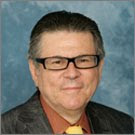Fred Seibert at left. ScribeMedia.org is a video site focusing on the business, technology and culture of the web. There is a six part, 90 minute interview with Fred Seibert, called " Building Digital Entertainment Brands ," which talks about Next New Networks, his collection of internet channels. Other videos are on " The Power of Online Storytelling ," " Maximizing the Monetization of Online Video Content ," " Independent Filmmaking in the Digital World ," and " Hollywood 2.0 -- Content and Commerce ." All the above links are to talking heads videos. I wish that they were transcripts instead, as they would be searchable and easier to speed read for relevant information. However, the interviews are with industry professionals, so their insights are worth hearing.




